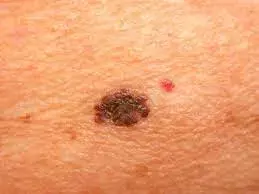- Home
- Medical news & Guidelines
- Anesthesiology
- Cardiology and CTVS
- Critical Care
- Dentistry
- Dermatology
- Diabetes and Endocrinology
- ENT
- Gastroenterology
- Medicine
- Nephrology
- Neurology
- Obstretics-Gynaecology
- Oncology
- Ophthalmology
- Orthopaedics
- Pediatrics-Neonatology
- Psychiatry
- Pulmonology
- Radiology
- Surgery
- Urology
- Laboratory Medicine
- Diet
- Nursing
- Paramedical
- Physiotherapy
- Health news
- Fact Check
- Bone Health Fact Check
- Brain Health Fact Check
- Cancer Related Fact Check
- Child Care Fact Check
- Dental and oral health fact check
- Diabetes and metabolic health fact check
- Diet and Nutrition Fact Check
- Eye and ENT Care Fact Check
- Fitness fact check
- Gut health fact check
- Heart health fact check
- Kidney health fact check
- Medical education fact check
- Men's health fact check
- Respiratory fact check
- Skin and hair care fact check
- Vaccine and Immunization fact check
- Women's health fact check
- AYUSH
- State News
- Andaman and Nicobar Islands
- Andhra Pradesh
- Arunachal Pradesh
- Assam
- Bihar
- Chandigarh
- Chattisgarh
- Dadra and Nagar Haveli
- Daman and Diu
- Delhi
- Goa
- Gujarat
- Haryana
- Himachal Pradesh
- Jammu & Kashmir
- Jharkhand
- Karnataka
- Kerala
- Ladakh
- Lakshadweep
- Madhya Pradesh
- Maharashtra
- Manipur
- Meghalaya
- Mizoram
- Nagaland
- Odisha
- Puducherry
- Punjab
- Rajasthan
- Sikkim
- Tamil Nadu
- Telangana
- Tripura
- Uttar Pradesh
- Uttrakhand
- West Bengal
- Medical Education
- Industry
Gut dysbiosis linked to genesis and progression of melanoma

Gut dysbiosis linked to genesis and progression of melanoma suggests a new study published in the JAMA Dermatology
The gut microbiome modulates the immune system and responses to immunotherapy in patients with late-stage melanoma. It is unknown whether fecal microbiota profiles differ between healthy individuals and patients with melanoma or if microbiota profiles differ among patients with different stages of melanoma. Defining gut microbiota profiles in individuals without melanoma and those with early-stage and late-stage melanoma may reveal features associated with disease progression.
A study was done to characterize and compare gut microbiota profiles between healthy volunteers and patients with melanoma and between patients with early-stage and late-stage melanoma.
This single-site case-control study took place at an academic comprehensive cancer center. Fecal samples were collected from systemic treatment−naive patients with stage I to IV melanoma from June 1, 2015, to January 31, 2019, and from healthy volunteers from June 1, 2021, to January 31, 2022. Patients were followed up for disease recurrence until November 30, 2021.
Fecal microbiota was profiled by 16S ribosomal RNA sequencing. Clinical and pathologic characteristics, treatment, and disease recurrence were extracted from electronic medical records. Fecal microbiome diversity, taxonomic profiles and inferred functional profiles were compared between groups.
Results
A total of 228 participants were enrolled (126 men [55.3%]; median age, 59 [range, 21-90] years), including 49 volunteers without melanoma, 38 patients with early-stage melanoma (29 with stage I or melanoma in situ and 9 with stage II), and 141 with late-stage melanoma (66 with stage III and 75 with stage IV). Community differences were observed between patients with melanoma and volunteers. Patients with melanoma had a higher relative abundance of Fusobacterium compared with controls on univariate analysis (0.19% vs 0.003%; P < .001), but this association was attenuated when adjusted for covariates (log2 fold change of 5.18 vs controls; P = .09). Microbiomes were distinct between patients with early-stage and late-stage melanoma. Early-stage melanoma had a higher alpha diversity (Inverse Simpson Index 14.6 [IQR, 9.8-23.0] vs 10.8 [IQR, 7.2-16.8]; P = .003), and a higher abundance of the genus Roseburia on univariate analysis (2.4% vs 1.2%; P < .001) though statistical significance was lost with covariate adjustment (log2 fold change of 0.86 vs controls; P = .13). Multiple functional pathways were differentially enriched between groups. No associations were observed between the microbial taxa and disease recurrence in patients with stage III melanoma treated with adjuvant immunotherapy.
The findings of this case-control study suggest that fecal microbiota profiles were significantly different among patients with melanoma and controls and between patients with early-stage and late-stage melanoma. Prospective investigations of the gut microbiome and changes that occur with disease progression may identify future microbial targets for intervention.
Reference:
Witt RG, Cass SH, Tran T, et al. Gut Microbiome in Patients With Early-Stage and Late-Stage Melanoma. JAMA Dermatol. Published online August 30, 2023. doi:10.1001/jamadermatol.2023.2955
Keywords:
Gut, dysbiosis, linked, genesis, progression, melanoma, Witt RG, Cass SH, Tran T,JAMA Dermatology
Dr. Shravani Dali has completed her BDS from Pravara institute of medical sciences, loni. Following which she extensively worked in the healthcare sector for 2+ years. She has been actively involved in writing blogs in field of health and wellness. Currently she is pursuing her Masters of public health-health administration from Tata institute of social sciences. She can be contacted at editorial@medicaldialogues.in.
Dr Kamal Kant Kohli-MBBS, DTCD- a chest specialist with more than 30 years of practice and a flair for writing clinical articles, Dr Kamal Kant Kohli joined Medical Dialogues as a Chief Editor of Medical News. Besides writing articles, as an editor, he proofreads and verifies all the medical content published on Medical Dialogues including those coming from journals, studies,medical conferences,guidelines etc. Email: drkohli@medicaldialogues.in. Contact no. 011-43720751


